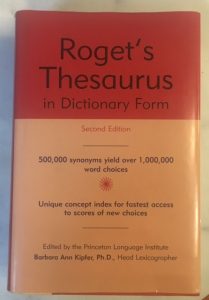We are often in need of indicating who is speaking and/or how. In doing so, beware of distracting—or irritating—your reader. Here are my personal Rules of Thumb for making attributions.
Use “said” 99.44% of the time. It calls least attention to itself. If you are desperate to find an alternative, it may mean that you are making too many attributions. When only two people are talking, you need only the occasional attribution to help the reader keep track of who is speaking. Also, if you embed dialogue in a paragraph of narrative, the subject of the narrative is—and should be—the speaker, so no attribution is needed. For example, Sarah turned to the window. “Whatever do you mean?” N.B. that in this instance, you needn’t add she asked; the question mark says that.
Use an alternative only when it clarifies delivery—and then sparingly. Personally, I’ve been known to have a character murmur, whisper, or mutter.
Let punctuation do its job. When you’ve used a question mark, you needn’t say the character asked. When you’ve used an exclamation point, you needn’t add that the character shouted, exclaimed, etc. Using ellipses at the end of an incomplete sentence conveys that the speaker trailed off.
If you must use an alternative to “said,” make it the most common alternative available.
say, acknowledge, aver, babble, badger, bemoan, brag, comment, enunciate, express, harangue, interject, interrupt, moralize, observe, pontificate, preach ramble, spout, state, vent, voice, articulate, blab, recite, relate, unfold, utter
accuse, blame, charge, impute, rant, rebuke, reprimand, reproach, reprove, upbraid
answer, agree, acknowledge, deny, react, reply, respond, retort
ask, appeal, beg, beseech, inquire, entreat, implore, interrogate, pester, plead, pump, query, question, quiz
assert, adduce, affirm, allege, announce, attest, avow, bemoan, boast, brag, crow, declaim, declare, deny, emphasize, exclaim, gloat, gush, insinuate, insist, intimate, justify, maintain, mock, plead, proclaim, profess, pronounce, purport, rave, refuse, retract, spout, state, swear, testify, voice, vouch
demand, beg, bid, charge, command, enjoin, entreat, importune, insist, order
deny, blame, contradict, demur, deride, disclaim, minimize, protest, refute, scoff, scold,tattle, taunt
describe, define, delineate, denote, detail, outline, paraphrase, portray, recite, recount, relate, state, summarize, tell
discuss, argue, belabor, communicate, consult, debate, deliberate, gossip, jabber, jaw, rehash, talk
explain, account for, admit, apprise, clarify, confide, elaborate elucidate. enlighten, excuse, illuminate, own, prove, rationalize, specify
These examples are substantially fewer than half of those listed in a thesaurus. Use them seldom, if ever. As I said before, they call attention to themselves. In addition, using many different words to replace “said” creates a pathetic tone of an amateur just trying too hard. And, finally, most of these variations in meaning are better handled by the dialogue itself, the setting, the narrative, and the punctuation.
Last but not least, don’t replace said with words like giggled, snorted, groaned, moaned, etc. These are separate actions, not the method of delivery.
Bottom line: Use your thesaurus and dictionary as aids to narrative and dialogue, not for varying attribution.
Interested in learning more about writing? Join me at Agile Writers for my class on Write Your Life: Memoir and Memoir-Based Fiction. For more information, visit the Agile Writers website.



